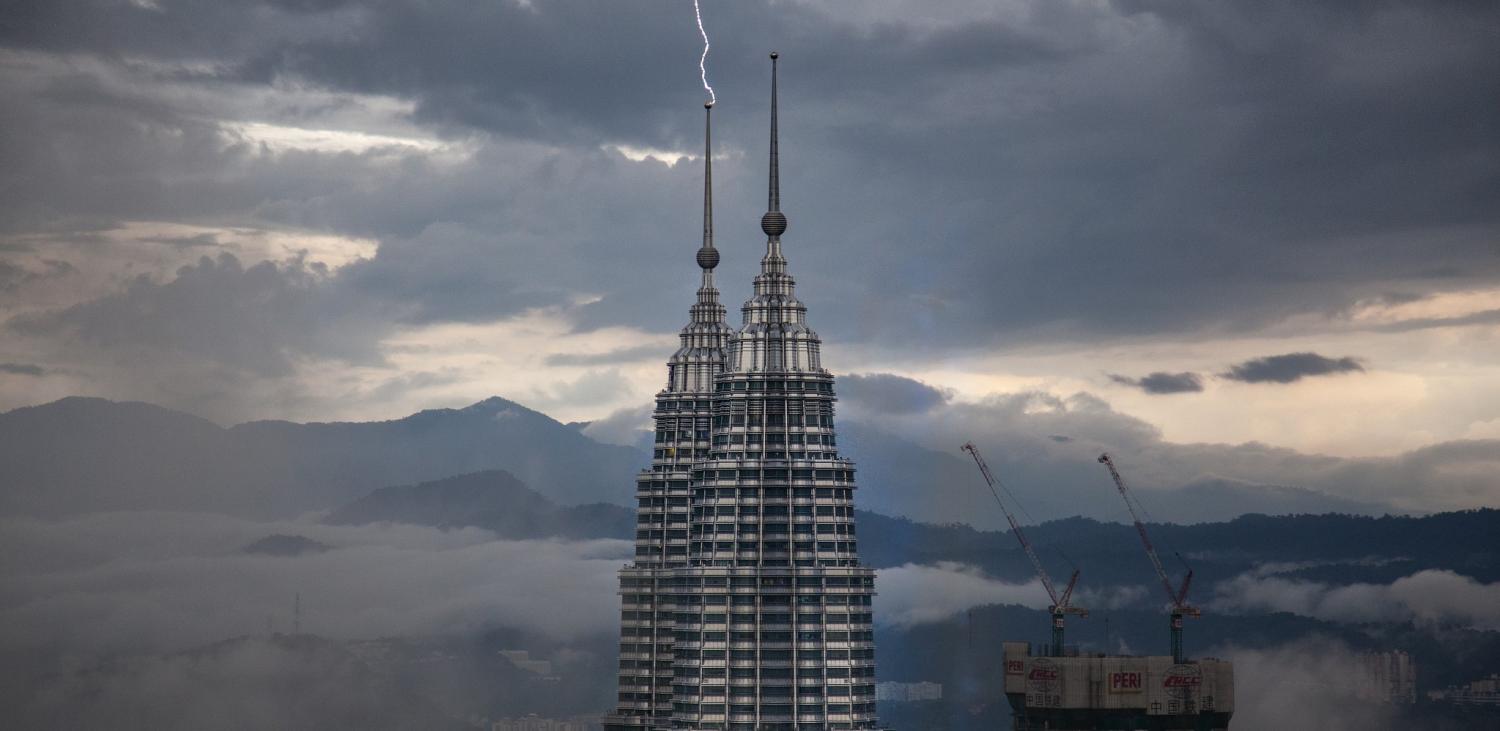Saudi Aramco, Riyadh's state-owned oil behemoth, has been investing heavily in Malaysia's economy, injecting $7 billion into the Refinery and Petrochemical Integrated Development project – a contribution that tops ASEAN's merger and acquisition activity for the first half of 2017. Thanks in large part to that investment, Malaysia's economy delivered a strong performance on the face of it, chalking up $11.7 billion in merger and acquisition transactions and $13.6 billion in total deal activity in January to June this year.
But with Kuala Lumpur still reeling from the hangover of the 1MDB scandal and the country trailing its counterparts on key indicators, the economy remains vulnerable. In fact, Aramco's investment is far more an indication of positive internal developments in Saudi Arabia than a sign of solid economic potential on Malaysia's side.
Defaulting on high expectations
The story was far different two years ago, when Malaysia's economy was viewed as one of the strongest in ASEAN, recording robust GDP growth, an expanding account surplus, and surging private investment. The government raised domestic and international expectations even further by making lofty promises to exceed its targets for growth, infrastructure development, and high-income status. However, despite promising initial results, the economy is floundering, as targets pass by unmet and as the 1MDB scandal continues to cast a long shadow over Malaysia's government and financial institutions.
1MDB now faces graft investigations across the world and most recently became embroiled in fresh controversy when a 'technical error' caused the sovereign fund to default on a $629 million repayment to the International Petroleum Investment Company of Abu Dhabi. The affair has rattled foreign investors by exposing corruption, systemic lack of transparency and incompetence within 1MDB, causing some to withdraw from the Malaysian market more broadly.
As the country turns 60 at the end of this month, it's becoming increasingly clear that Malaysia won't simply fail to exceed the nine targets of Vision 2020, an ambitious plan established in 1991 to transform into a developed nation by the end of this decade – it's likely Kuala Lumpur won't meet some of the targets even by 2030. What's more, as smaller countries with lower costs of labour such as Vietnam gain competitive advantages and become more attractive for foreign investment, Malaysia now runs the risk of becoming trapped as a middle-income country, with the stagnant growth and wages to match.
What really drove Aramco's investment?
It's clear that Aramco's $7 billion investment has less to do with the promise of the Malaysian economy than with Saudi Arabia's own priorities. Since the precipitous drop in oil prices in 2015, Crown Prince Mohammed bin Salman has been leading a drive to overhaul the Kingdom's economy by opening up the national stock market to foreign investors, converting tracts of desert land into new cities, and even building beach resorts for tourists, among other initiatives.
The Saudi investment in the Refinery and Petrochemical Integrated Development project thus came in the context of the King's month-long commercial diplomacy tour across Asia earlier this year, which entailed stops not only in Malaysia, but also in China, Japan, Indonesia, Brunei, and the Maldives. China and Japan are particularly critical export markets and prospective investors in Saudi Arabia's upcoming Aramco initial public offering (expected to be among the world's largest). Given the broader context, Kuala Lumpur shouldn't delude itself into thinking Aramco's investment is anything more than just that, even if Riyadh is more open than before to economic partnerships.
It should also be noted that Riyadh's deepening commercial engagement with Asian partners (especially smaller markets like Malaysia) is minute in comparison to the Kingdom's economic ties with Western allies, which have much more to offer the Kingdom in turn. One such ally is the UK – the UK government is now courting the Saudis more keenly than ever before in a bid to sell London for the Aramco listing, as well as for a post-Brexit free trade agreement (a prospect that the Gulf Cooperation Council has already endorsed). As Riyadh deepens its economic ties with partners both big and small, Kuala Lumpur would do well to realise that investment from the Kingdom is no mark of its own economic strength.
If Malaysia wants to increase the prospects of securing another $7 billion-sized deal in the future (not to mention clearing the hurdle to become a high-income nation), it will need to take much more drastic steps to address persistent drags on its economy. Above all, the government must invest far more in education, training, and in promising industries – building 'more chocolate factories rather than more cocoa plantations', as the head of the Federation of Malaysian Manufacturers recently put it. It's a strategy with far more potential than relying on the economic largesse of any single partner. Most recently, for instance, the dispute between the Saudi-led coalition and Qatar has already spilled over into Asian economies' energy sectors, with Malaysia and its neighbours being forced to choose sides.
Under its new leadership, Saudi Arabia is already making a renewed effort to invest in its young people and in a cross section of industries as a way to secure its economic future. With elections slated within the next year, the Malaysian government is running out of time to do the same.

